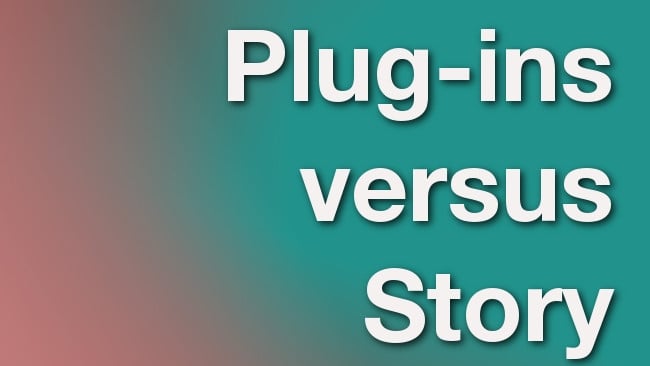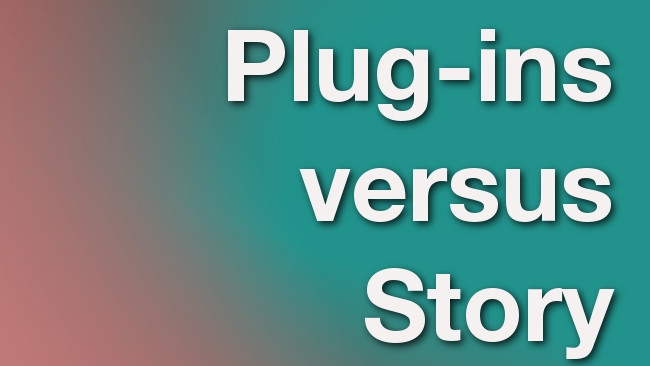
 Plug-ins versus Story
Plug-ins versus Story
Jonny Elwyn urges editors to stop fixating on plug-ins and use more of that time and energy on building better stories.
I recently tweeted this:
Things that don't matter: The camera you shot with. The NLE you cut in. Things that do matter: The story you tell. The emotions you create.
— Jonny Elwyn (@jonnyelwyn) August 17, 2015
I think that, as a filmmaking and post-community, we've become far more fixated on the technology than we need to be. We seem to be breathlessly chasing more bits, as if that's what will make our work better. Juan Salvo summed up the fat-data-future nicely in this tweet:
We're actively (as industry) adopting 3 new techs. UHD (4x Data), HFR (2-5X Data), and HDR (1.5-2x Data). 1 sec HD=132MB. 1sec UH(F/D)R=5GB
— Juan Salvo (@j_salvo) May 7, 2015
But, really, storytelling is all that matters.
If a feature film shot on an iPhone 5 can be the talk of Sundance, then isn't it about time we focused on what really matters?
It's not about the resolution of your camera, the feature set of the NLE you cut in or the third-party plugins with which you pimp out your system and your show.
If you are watching the final film and you're thinking about any of these things, then the creators have failed at a fundamental level. Also, once you're watching a film, it's pretty much impossible to deduce what it was cut or shot on anyway, so why do we care so much?
Paper Tigers
Now, don't get me wrong; I'm a pretty geeky editor. I love a new software update or clever new app as much as the next person, but I don't think it should be where my time and energy should be spent. Or, at least, not as much as it is.
For example, three minutes of Tony Zhou's Every Frame A Painting is far more inspiring to me than 30 minutes of a software demo, because I'm learning something about storytelling that inspires me to tell stories of my own and to tell them better.
Of course, I'm not saying we don't need the technology. Having new and better tools can aid creativity and help filmmakers make better films. Without 6K images, David Fincher couldn't compose films in the way he'd like, nor craft the performances he wants.* But Fincher has also learned the craft of storytelling as diligently as he's leveraging the tech.
*Fincher likes to shoot a larger image and then reframe to his smaller distribution format in post, as well as doing a lot of composite performances and shot stabilization.
A lot of younger filmmakers I meet seem to know a lot more about technology than storytelling and that's only going to lead to terrible films that happen to look incredibly slick.
My complaint is as old as the hills – style with no substance. Today's version is just multi-hundred-million dollar movies with no characters, no story arcs and no emotional punch or Youtube videos that are effectively the same entity produced in miniature.
The trickle-down problem today is that weak storytelling can be very easily masked. I see this often with younger editors that I work with, where they've added in music and sparkly effects and graphics and their films 'seem' to work at first glance. They are watchable at least, but the stories aren't straight; they are over-weight and underwhelming. It takes discipline to do the heavy lifting before any of the satisfying gloss work.
In summary, perfecting your story is much harder than installing another plugin. If you find yourself spending more time on the tools of editing as opposed to the craft of editing and effective storytelling, adjust that ratio and focus more of your attention on what really matters.
Tags: Post & VFX


Comments